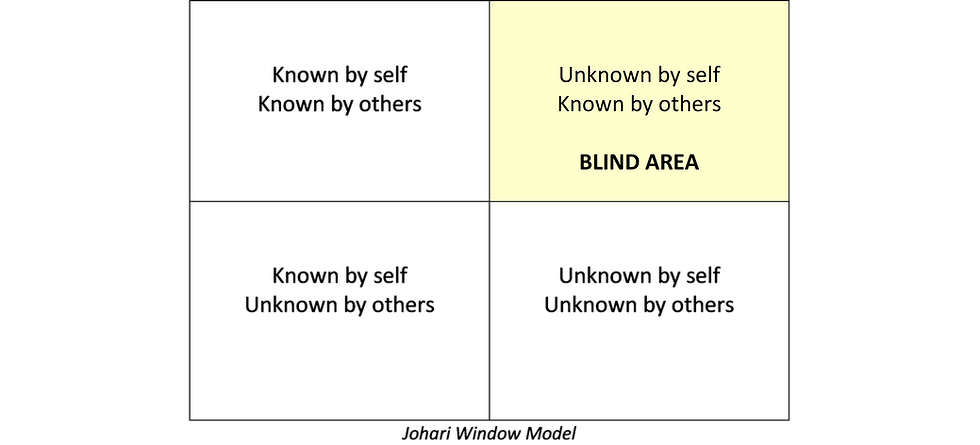Leaders, Executives, Senior Managers, lend me your ears
- Steve Lungley
- Nov 14, 2017
- 3 min read

Almost without exception those of us that hold a leadership, executive or senior management position have attained that position through a combination of our technical expertise, functional knowledge, IQ and educational achievements. But we have probably built up behavioural habits that hold us back or worse still, derail us.
How many times have you heard, or indeed uttered phrases yourself, such as “Fred is brilliant with the numbers, but let’s himself down when ….” or “If only Mary wouldn’t ……., she’d be awesome”. In my work as a leadership development coach I hear those sorts of statements regularly. The negative behaviours that are cited often include things like: not listening, shooting the messenger, withholding information, having to be the smartest person in the room, short fuse, not saying thank you. There are plenty of others.
Paradoxically, we are often positively deluded about our leadership qualities. When sampled, 90% of leaders typically rate themselves above average. A statistical impossibility that highlights just how prevalent the delusion is.
We have Achilles heels: unattractive qualities that cancel out all the positive attributes we have. They prevent us being awesome leaders and make it really hard for people to want to be around us let alone follow us. In its most extreme form we can be seen as a jerk, a bully, or nasty. And rarely do we know just how badly we show up. Our bad habits and poor behaviours are commonly in the Johari Window model’s ‘Blind Area’: we are unaware or ignorant while the behaviour is plainly visible to everyone else around us.

Of course there are some who are self-aware of their poor behaviours but they choose to hide behind the façade of authenticity – “that’s just the way I am”. That doesn’t make the behaviour any more acceptable. In fact, it lowers your credibility. Ignorance is one thing, but failing to address poor behaviour or self-excusing it is another thing entirely. No one respects you and the further up the organisational hierarchy you are, the more damaging that is. In today’s competitive landscape you need to be a ‘brand ambassador’ for your organisation more than ever. Employees have more choice than ever about who they work for and, despite the long-held but flawed belief they’re motivated by money, will move somewhere where the atmosphere is better. Take a look at happiness scores, engagement levels, staff turnover data or Glassdoor reviews.
So, stop the annoying behaviour and you’ll stop being seen as an annoyance and start being viewed as a leader.
The starting point is to get a truly accurate and unvarnished picture of how you’re perceived. You won’t be able to do this by just asking a few of your cronies what they think. They’re not going to give you helpful feedback nor will you get it by just asking around. Your questions are unlikely to be adequately focussed and the respondents’ first thoughts will be about how providing truthful feedback might harm them. Self-preservation is a fundamental human trait.
When I work with a client that has taken the decision to further invest in their own success or when I work with a client whom someone else in the organisation has identified as worth investing in, I provide that critically important initial insight. I hold the proverbial mirror up by playing back the data I have assembled through ethnographic research, observational analysis, retrograde analysis, personality assessments and other techniques.
Hearing and digesting what everyone thinks about them strips away a delusion or two paving the way for us to work on what to change and how to go about it. Of course, behavioural change isn’t an overnight activity. It’s like getting fit; it takes sustained effort. Throughout, I am at the client’s side 1:1 vigilantly helping them assess progress and keeping them from back-sliding on their commitment.
Two years ago I started working with a client who was an incredibly smart, go-getter with a voracious appetite for work who was frequently the “go to guy” when there were complex problems to be solved that the rest of the organisation struggled with. While the problem was always solved, he had a tendency to leave a wake behind him through dysfunctional behaviour. A not-so-subtle comment made by someone leaving the organisation made him realise that his behaviours would hold him back and he asked for my help. Two years on and the picture is very different. He has worked hard on fixing a key interpersonal deficiency. A couple of weeks ago we were reflecting on his progress when he said: “The hardest part is getting through the pain of the kick in the dangly bits when you see what an a*se you’ve been. After that, if you work at it and get other people’s help, it becomes simpler. It isn’t easy; but it is so worth it”.
The best time to change is always now. Don’t leave it too late.
Steve Lungley
+44 7766 711465



















Comments